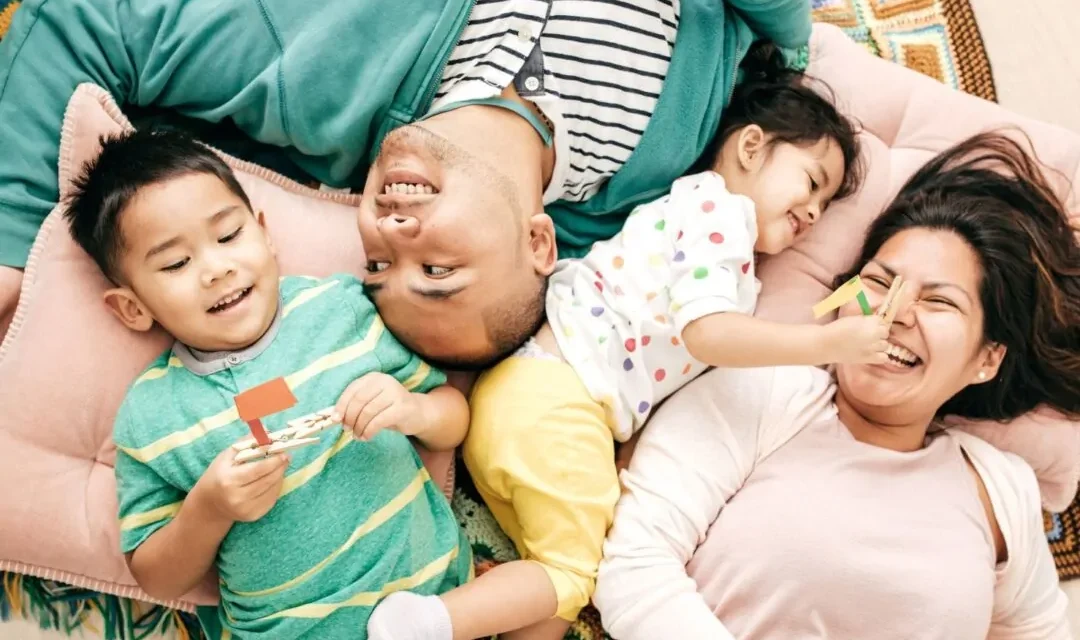Table of Contents
- Introduction to Chelsea FamousParenting
- The Importance of a Positive Parenting Approach
- Building a Strong Relationship with Your Child
- Communication and Discipline in Positive Parenting
- Encouraging Independence and Resilience in Children
- Promoting Self-Care for Parents
- Case Studies: Real-Life Examples of Successful Positive Parenting
- Conclusion: Creating a Happy and Healthy Childhood for Your Child with Chelsea FamousParenting
- FAQs:
Introduction to Chelsea FamousParenting
Parenting can feel like a maze because, with each turn, new challenges, new stress, and moments of happiness arise. Meet Chelsea FamousParenting – A constructive parenting style that encourages parents to look at the sunny side of their child’s upbringing.
Such parents nurture their children but at the same help them to be self-reliant and persistent. The method also emphasizes discipline as a form of effective communication. With so much focus on nurturing, one cannot forget the practical tools Chelsea FamousParenting provides to ensure every child reaches their fullest potential. It does not matter if it’s your first time being a parent or if you have been here before; this philosophy answers how families can be constructed with all members being happy, one day at a time. Are you ready to learn how to be a good parent to your children? Let’s go ahead and find out!
The Importance of a Positive Parenting Approach
Positive parenting makes caring for children easy. Thanks to this base, the children develop healthily, emotionally, and socially. When parents decide to turn to redeeming in their ways, present parenting, they imbue the children with trust and security.
Children learn from their surroundings. The ‘go to’ thinking of a parent fills the kids with hope and strength. They set their sights on the hurdles only to realize how they can do the task instead of the opposite.
Positive parenting also enhances self-gratification among children. Children who respect themselves are likely to voice their thoughts and concerns. In this way, communication is openly done in every family, so the commitment is firm.
But stress is toxic for parents and children as well. Positivity as a practice creates a low home anxiety level, and the whole environment is in an encouraging and empathetic mode.
By adopting this approach, one not only adjusts personal behavior but also develops such behavior in future relationships. It prepares a person for the future as cooperation will be natural, and respect with empathy towards everyone will not be an option.
Building a Strong Relationship with Your Child

Hence, it is essential to reinforce parent-child relationships from the early developmental stages since this benefits a child’s emotional health.
This is important as it creates a sense of security, building trust and understanding.
Take some time to listen to them. This means giving them undivided attention when they talk. Please pay attention to what they think, feel, and have gone through.
Try doing something together. Time spent doing chores like playing games, cooking, or cleaning the house will create a strong connection.
Say that you love them every day, do something nice for them, and do it often. Something as simple as a hand around their shoulders or a few words of praise can significantly improve their self-esteem.
Be bold in explaining the importance of expression about feelings and emotions. Please encourage your child to feel comfortable with presenting their emotions without fear.
When encouraging your child, encourage them but allow them to explore when and how it’s appropriate to do so. This equilibrium will promote confidence and ensure that both of you still share that important bond.
Communication and Discipline in Positive Parenting
Effective communication is at the heart of Chelsea FamousParenting. It creates a safe space for children to express their thoughts and feelings, and when parents listen actively, children feel valued.
Discipline in this framework isn’t about punishment; it’s about guidance. Setting clear expectations helps children understand boundaries. It’s essential to be consistent yet flexible, adapting your approach as they grow.
Positive reinforcement can more effectively shape behavior than negative consequences. Praise efforts rather than just accomplishments, and watch confidence blossom.
Moreover, modeling appropriate behavior is crucial. Children acquire knowledge through imitation of their parents and their behavioral patterns. For example, one can model coping with rage and disappointment without losing composure.
Encouraging open dialogue fosters trust between parent and child. This connection lays the foundation for respectful interactions throughout life.
Encouraging Independence and Resilience in Children
There are studies and various writings about fostering children’s independence. This benefits the child in the long term, encouraging them to mature and evolve with time.
It develops self-assurance and decision-making capability. Even when children are given only the freedom to make choices, this promotes self-efficacy.
Independence is synonymous with resilience. Children learn how to deal with difficulties when they encounter them.
Instead of immediately stepping in to help, guide them gently. Encourage problem-solving rather than providing instant solutions.
Praise effort over outcome. This further promotes optimistic and growth-oriented thinking, as learners are trained to perceive failures as a stage in the striving process. Appreciate the little wins on the journey.
Cultivate a culture where mistakes are considered a chance to learn and develop. Such a mindset motivates children to attempt new activities without dreading failure.
Model resilience yourself by sharing your experiences overcoming obstacles. Children often emulate what they see at home, and showing how you handle adversity can inspire them deeply.
Promoting Self-Care for Parents
Parents’ well-being has a place in the discussion of self-care but is unfortunately often undermined. Becoming a parent, no matter how the circumstances might be, brings a lot of mental and physical stress. One needs to engage in self-care so that they can also care for their children.
Making time for oneself as a parent should be easy. Going out for a short stroll or reading is an active self-care many parents need. These little pockets of time help settle the mind and ease tension.
Even other caregivers should be encouraged to participate in this practice. Distributing the workload ensures that all the participants get to take time off when they want to. It also creates a beneficial network around parenting.
Moreover, self-care includes mindfulness techniques. You will be surprised how even 5 minutes of correct deep breathing can alter your response to chores and other tasks that you face on a daily basis.
Self-care is more about one’s hard and fast practices. It is equally important to educate the young ones, and practicing self-care in front of one’s child sends the right message. Children understand that it’s acceptable to carve out time for themselves, allowing them to acquire healthy habits even at a young age.
Case Studies: Real-Life Examples of Successful Positive Parenting
A great example of this type of parenting, so commonly referred to, is present in the Johnson family. They had a tough time when their teen began to pull away from them. Aimed at establishing tension within the home environment, they refrained from introducing draconian measures. All family members had something about hearing more of each other than talking too much about themselves during the family’s regular meetings.
Another encouraging family to the case is the Martinez household. When their young son faced anxiety, there was no undue pressure but encouragement. Enunciating small victories in his daily outings helped to improve his self-esteem in a gradual period.
The children of the Lee family demonstrate how encouraging parenting can produce resilient children. Their daughter was given age-appropriate difficulties, which in turn encouraged her to learn how to solve problems. Gradually, she was empowered to overcome challenges on her own.
These stories resonate with the fact that every positive parenting case, regardless of pursuit, is different yet effective. Each of them demonstrates the many ways in which support and understanding can benefit mothers and families as a whole.
Conclusion: Creating a Happy and Healthy Childhood for Your Child with Chelsea FamousParenting
Chelsea FamousParenting does not state any parenting rules but describes the atmosphere within which children should be raised. The upbeat parenting style provides an opportunity to create eternal family relations.
This should not be a battleground, as there is no need to do so. This is enough to take the first step toward a better understanding of the child’s words, thoughts, and emotions. This enables him to develop trust in the future and raises a child’s emotional intelligence. It is not infrequency that constructs discipline, as they are able to do so to teach how things should not be done.
Allowing some responsibility to be taken helps a child be more resilient when such situations lack ideal resolutions. Children are taught to care for their parents when they care for themselves, which teaches them the sacrificial nature required of children to care for others.
From the case studies provided in examples, lively and successful positive parenting sources on the enlargement of families with thriving parents and kids. Strategies designed in stages for parents to embrace to enhance this journey bring meaning to childhood experiences where only happiness is sought.
That is beautiful. It is welcoming as more and more families embrace the philosophy behind Chelsea FamousParetning. It’s just lovely. We all bear the hope of goodwill with no violence.
FAQs:
Question 1: What is Chelsea FamousParenting?
Answer: Chelsea FamousParenting is a constructive approach to parenting that focuses on nurturing children, encouraging independence, and fostering positive communication within the family.
Question 2: How does Chelsea FamousParenting improve parent-child relationships?
Answer: Chelsea FamousParenting strengthens parent-child relationships by encouraging active listening, spending quality time together, and expressing love and support daily.
Question 3: What role does discipline play in Chelsea FamousParenting?
Answer: In Chelsea FamousParenting, discipline is about guidance and setting clear boundaries rather than punishment, promoting respect and open communication.
Question 4: How does Chelsea FamousParenting help children develop resilience?
Answer: Chelsea FamousParenting encourages children to solve problems independently, praise effort over outcomes, and view mistakes as learning opportunities, building resilience.
Question 5: Why is communication important in Chelsea FamousParenting?
Answer: Effective communication in Chelsea FamousParenting creates a safe space for children to express their thoughts and feelings, fostering trust and understanding between parents and children.
Question 6: How does Chelsea FamousParenting encourage children’s independence?
Answer: Chelsea FamousParenting galvanizes self-reliance in the children, allowing them to make choices, resolve conflicts, and instead learn from their mistakes, elevating self-belief and self-efficacy.
Question 7: What is the significance of self-care in Chelsea FamousParenting?
Answer: In Chelsea FamousParenting, parents are assured of staying in good physical and mental condition due to self-care, enabling them to care for their children and set good examples.
